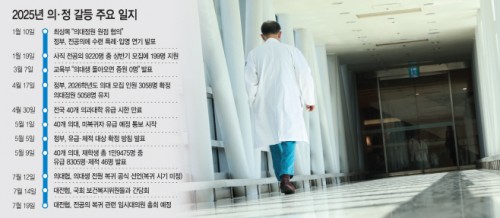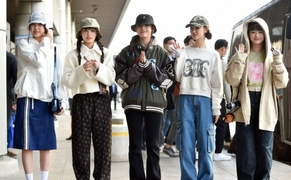 |
As medical students across South Korea declared a full return to school last week, momentum is now building for resident doctors to follow suit—potentially bringing a 17-month-long standoff between the medical community and the government to a close. However, concerns remain that any government concessions offered to facilitate their return could spark fairness controversies from those who returned earlier.
According to medical sources on July 13, the Korean Intern Resident Association’s emergency committee (KIRA) is scheduled to hold a closed-door meeting with members of the National Assembly’s Health and Welfare Committee on July 14. Participants will include KIRA’s acting chair Han Sung-jon and lawmakers including Committee Chair Park Jumin. Key agenda items include refining the government’s essential medical policy package, improving resident working conditions, and ensuring continuity in training—demands residents have cited as preconditions for their return.
KIRA is also set to hold a special general assembly on July 19 to formally deliberate on the return of those who previously resigned. However, persuading residents in essential medical fields such as internal medicine, general surgery, pediatrics, and obstetrics remains a challenge. A recent KIRA survey of 8,458 former residents showed that 72.1% of those unwilling to return were from these core specialties.
These residents are calling for a reexamination of the essential care policy package, legal relief for unpreventable medical accidents, substantial improvements in training environments, an increase in specialist staff at teaching hospitals, and a formal apology and retraction of the government’s previous back-to-work order.
The Ministry of Health and Welfare has said it is not currently considering any special concessions, but is closely monitoring the residents’ demands. Only 2,532 residents—18.7% of the pre-resignation total of 13,531—are currently undergoing training nationwide. Medical students who announced their return have also requested academic leniency, such as suspension of failed grades and expulsion deferments.
This has sparked concerns that offering special treatment to residents and students now could be seen as unfair to those who already returned. The Korea Alliance of Patients Organizations criticized the government’s approach, stating, “We don’t understand why preferential measures are continually being discussed only for medical students and residents. Granting special privileges to one group amounts to secondary harm to others,” and called for consistent standards.
If both medical students and residents return to their roles, the protracted conflict between the medical community and government that began in February 2024 may finally be resolved. However, a full return remains unlikely. More than half of the resigned residents are now employed at other institutions, and some have chosen to leave the profession entirely.
Most Read
-
1
-
2
-
3
-
4
-
5
-
6
-
7





















